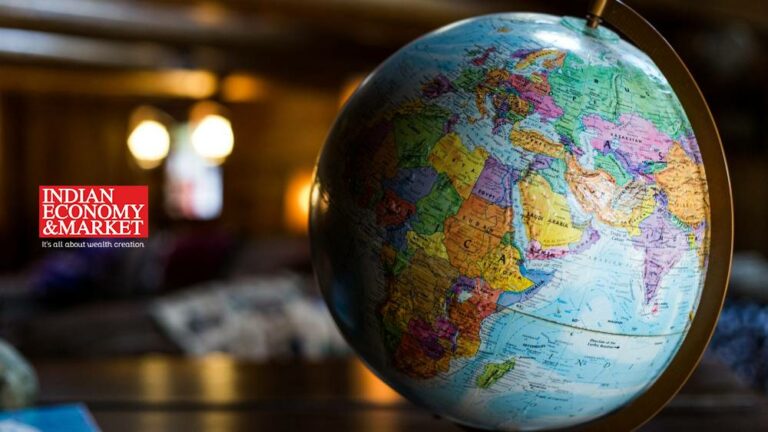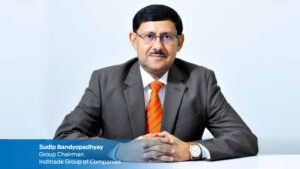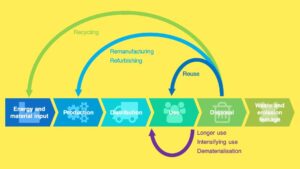While the COVID-19 pandemic remains a defining event of our era, its direct economic impact has begun to wane. Businesses now face the challenge of adapting to a world continually reshaped by technological disruption, geopolitical shifts, and the lingering aftershocks of the global health crisis.
While this technology i.e. AI and ML existed before, the circumstances of 2023 propelled its implementation forward. This swift integration of AI offers tremendous opportunities to rethink and recalibrate the role of human workers within the new landscape. Instead of viewing automation and AI as replacements, we should see them as powerful tools that can augment human capabilities and enhance productivity. By strategically integrating these technologies, businesses can free up human potential to focus on higher-level tasks requiring creativity, critical thinking, and social intelligence. This shift necessitates a renewed focus on upskilling and reskilling the workforce. By equipping employees with the skills necessary to collaborate effectively with AI systems and navigate the evolving work environment, businesses can ensure a smooth transition and unlock the full potential of this technological revolution.
The Russia-Ukraine conflict of 2022 and its ongoing repercussions, alongside the 2023 escalation of tensions between Israel and Palestine, have further exposed a deepening geopolitical divide. The resulting disruptions to energy supplies, trade, and regional stability have forced many nations to reassess their global alliances and security partnerships. Economic nationalism is on the rise, with countries prioritizing securing self-sufficiency in key sectors and potentially re-evaluating reliance on trade partners perceived as unreliable. This environment presents a complex landscape for multinational businesses where previous partnerships and trade routes may no longer be sustainable.
The global workforce picture is more nuanced than simply a labour shortage. In some sectors and regions, finding the right skills remains a challenge, highlighting the need to bridge the skills gap. Conversely, the world faces the contrasting demographic situations of a burgeoning young population in countries like India, now the world’s most populous nation, and aging populations and declining birth rates in many developed economies. Businesses are increasingly focused on retention strategies, prioritizing upskilling and offering more flexible, remote-friendly models to retain skilled employees. Additionally, there’s a growing focus on attracting previously underutilized talent pools for both ethical and economic reasons.
The urgency of addressing the climate crisis only intensified throughout 2023, with extreme weather events and natural disasters causing global economic hardship. The urgency of addressing the climate crisis reached a fever pitch in 2023, with the scorching heatwaves in Europe, devastating floods across multiple regions, and wildfires raging across California causing widespread economic hardship. Businesses now face the dual challenge of adapting to these intensifying weather phenomena, such as through resilient infrastructure upgrades, and mitigating their environmental impact to ensure long-term viability. Sustainability and the commitment to net-zero emissions are no longer optional. Investors increasingly prioritize companies with robust ESG strategies, while consumers are actively seeking out sustainable products and services. Businesses that fail to adapt and embrace the climate imperative risk losing investor confidence and falling out of favour with consumers.
To navigate this complex workforce landscape, businesses must:
- Prioritize Proactive Upskilling and Reskilling: Invest heavily in programs that help current employees adapt to new technologies and fill emerging skills gaps.
- Tap into Diverse Talent Pools: Expand traditional talent sourcing strategies to reach previously overlooked or underutilized populations, recognizing the competitive edge that inclusive workplaces hold. This includes proactively seeking international talent where there’s a demographic mismatch.
- Build Adaptable Business Models: The businesses of the future will be built to weather unpredictable change. Cultivate agility, embrace decentralization, and foster a culture tolerant of calculated risks.
- Re-evaluate Global Strategies: Develop location strategies that match skills needed with the demographics of the area. Be prepared to pivot in how you expand to take advantage of demographic strengths worldwide.
- Demonstrate Ethical Leadership: In a world rife with social and environmental issues, genuine commitment to corporate responsibility is essential. Businesses must champion diversity, inclusion, and ethical AI development, while actively working to reduce their environmental footprints.
- Master Data-Driven Insights: The massive surge of data generated in recent years provides valuable information. Those able to harness the power of analytics and insights will have a significant advantage.
The global economic reset is still actively unfolding. In this environment, businesses that succeed won’t simply react to change; they’ll anticipate evolving disruptions and proactively adapt their models. By emphasizing strategic workforce investments, technological agility, and a genuine commitment to building a better future, businesses can not only secure their survival but create new opportunities for prosperity in the shifting landscape of the global economy.






















